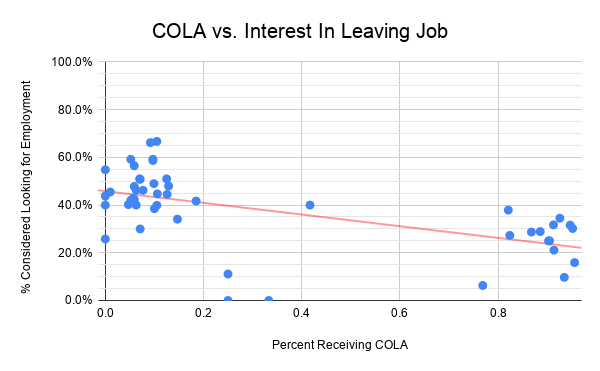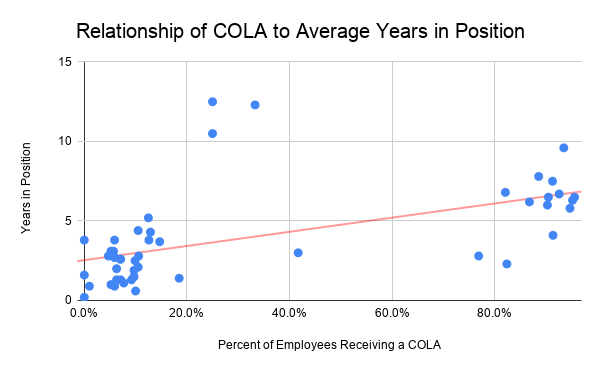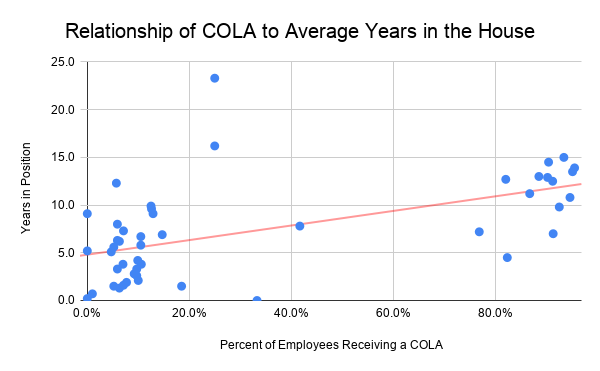Last year the House released a valuable report on staff pay, benefits, and diversity. We took a look at the data to answer the question, are better pay and benefits really correlated with staff staying on board? The short answer is yes.
We’ll be releasing a series of short articles focusing on different variables and their impact on staff longevity. This article, the first in that series, focuses on the impact of cost of living adjustments (COLAs) on staff retention.
The House study results are broken down into three sections: House officers, committee and leadership offices, and personal offices. Those results are separated out by job title, with data reflecting the aggregate responses from participants with that given job title.
Positions that had a higher percentage of employees reporting they received annual COLAs, also had a lower percentage of employees reporting that had considered looking for employment elsewhere. In other words when employees’ salaries kept pace with inflation they were less likely to consider jumping ship.

On top of that, the positions where most employees received a COLA reported employees staying in those positions, and in the House of Representatives overall, longer. As the graphs below show, when >80% of employees in a given position reported they had received a COLA, their average tenure in their position was more likely to be 5 to 10 years, and their average tenure in the House of Representatives was more likely to be ≥10 years.


Of course, correlation does not equal causation, and the data has limitations; that said, it appears making sure your employees’ pay keeps up with the times has its benefits.